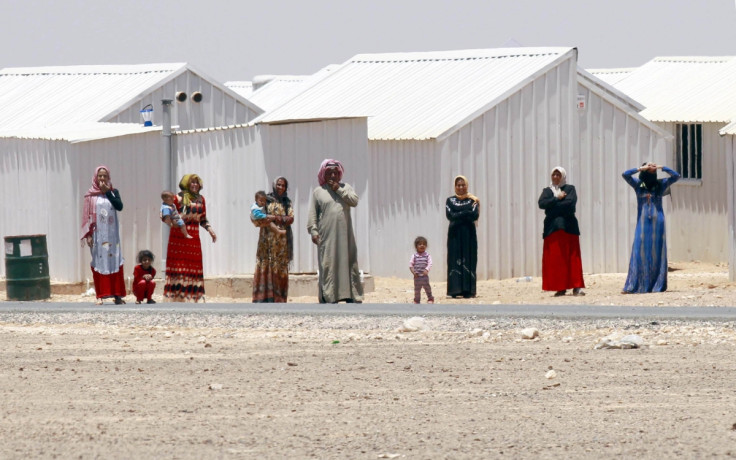Syrian Refugee Crisis: Child Marriage Doubled Since War Started

The number of underage Syrian refugee girls who are married off by their families because of extreme poverty and fears of sexual violence has more than doubled since the civil war erupted in 2011, aid groups have said.
Save the Children said that in 2013, one in four marriages among the refugee community in Jordan - where more than 600,000 Syrians have fled the conflict at home - involved a girl under the age of 18.
Almost half of those tied the knot with a man at least 10 years their senior, said the charity.
"I wanted to finish my studies and become a doctor. But my parents forced me to marry ", 13-year-old Maha, not her real name, was quoted as saying by the aid group in the report Too Young to Wed. "My father was worried about sexual harassment here."
Save the Children said Maha is now pregnant. Her husband is ten years older than her.
"Child marriage is devastating for those girls concerned," said Save the Children's Country Director in Jordan, Saba Al Mobaslat.
"Girls who marry before 18 are more likely to experience domestic violence than their peers who marry later and they have much more limited access to sexual and reproductive health, putting their young bodies at extreme risk if and when they become pregnant.
"Girls under 15 are five times more likely to die in childbirth than fully-grown women," Al Mobaslat said.
Early marriage was common in Syria before the war especially in conservative, rural areas but the practice has since increased drastically.
Before the war about 12% of marriages in Syria involved a minor. In 2012 the number went up to 18% and reached 25% in 2013.
Due to poor safety and precarious living conditions experienced by refugee families, some parents feel they have no choice but to marry their daughters to keep them 'protected', the charity said.
In May, IBTimes UK reported how economic hardship caused by the civil war meant that some parents saw dowry money as a possible source of livelihood.
Sham marriages, where girls are sold off to elderly foreigners who often abandon them a few weeks later, have also been reported.
"I was forced to marry because my family and I - ten people - were sharing a very small house with only two rooms," 15-year-old Nadia said.
"We had to get married and it was a day full of tears and sadness more than joy."
Statistics show that children who quit studying are more likely to marry and in turn those who get married are more likely to drop out of school.
"Since I got married I don't feel anything," said Reem, 15. "I do feel sad when I see other girls from my neighbourhood going to school. Whenever I see a woman who has become a doctor or a lawyer or has finished education I get upset."
Save the Children said they are working with their partners to raise awareness on the problem and prevent child marriage.
© Copyright IBTimes 2024. All rights reserved.







